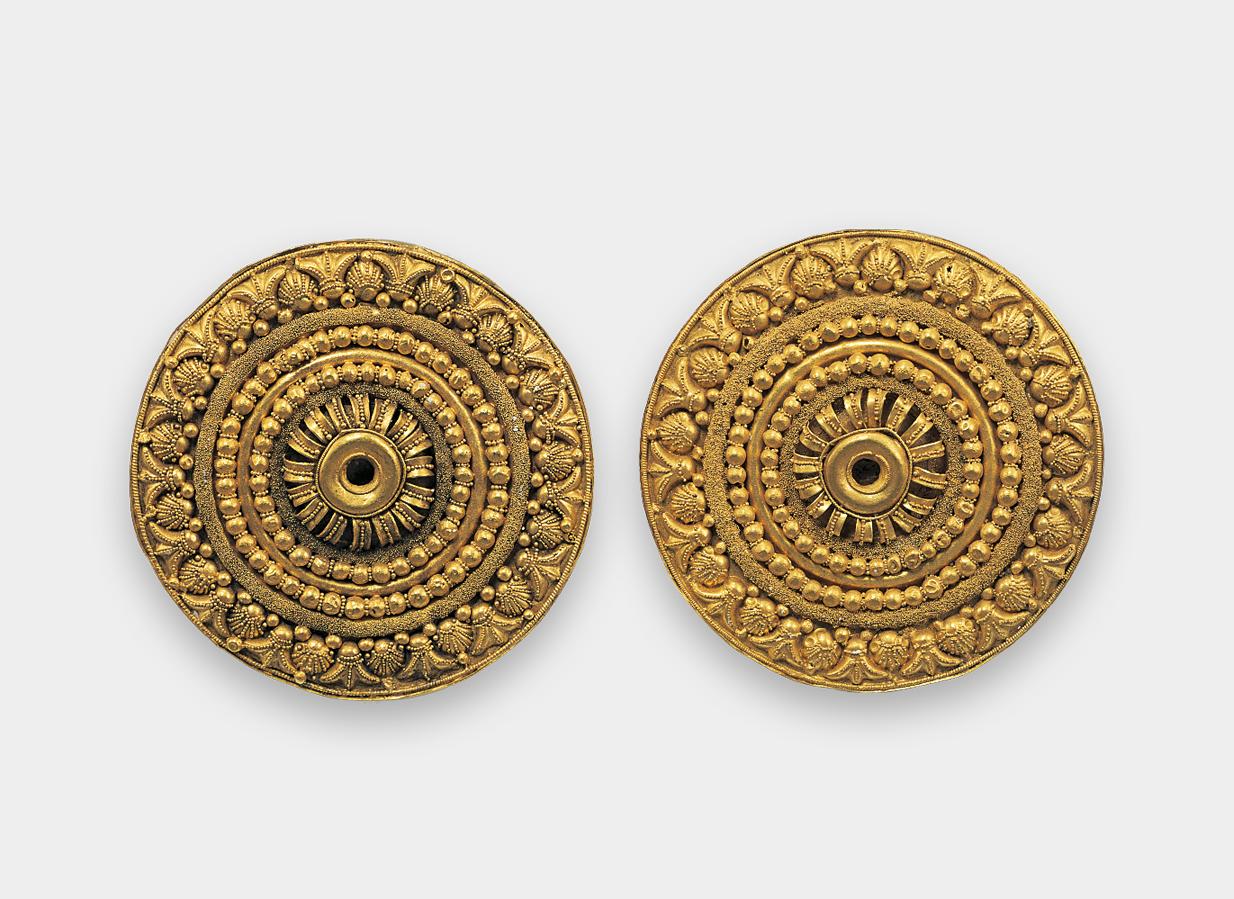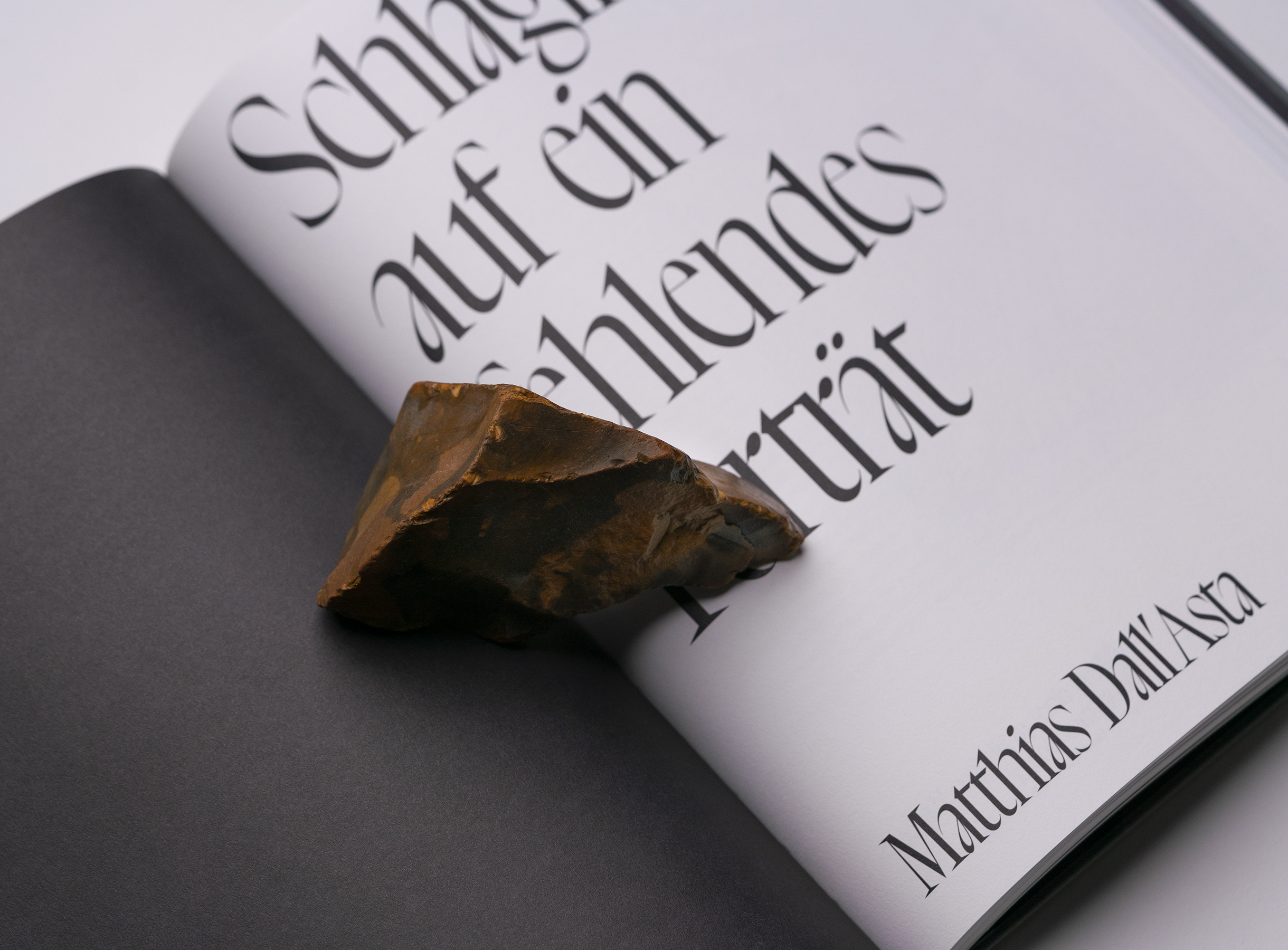Die Mysterien der Zeichen. Johannes Reuchlin, Schmuck, Schrift & Sprache
MORE INFORMATION
Published on
12.02.2023
–
Buy: Die Mysterien der Zeichen. Johannes Reuchlin, Schmuck, Schrift & Sprache
To mark the 500th anniversary of the death of Johannes Reuchlin, Pforzheim’s Jewellery Museum has published the art volume “Die Mysterien der Zeichen: Johannes Reuchlin, Schmuck, Schrift und Sprache,” which was published by Arnoldsche Art Publishers in Stuttgart.
Bibliographic data
Die Mysterien der Zeichen. Johannes Reuchlin, Schmuck, Schrift und Sprache
Matthias Dall’Asta und Cornelie Holzach (Ed.)
Published on 02.11.2022
With contribution by Jonathan Boyd, Beatriz Chadour-Sampson, Matthias Dall’Asta, Cornelie Holzach, Wolfgang Mayer, Susanne Nagel, Katja Poljanac, Stefan Rhein, Nathan Ron, Isabel Schmidt-Mappes, Pierre Vesperini and Anja Wolkenhauer
EUR 44 272 pages
24 x 30 cm, ca. 200 ill.
German, Arnoldsche Art Publishers, Stuttgart
ISBN 978-3-89790-670-9
Buy on Amazon
The 272-page volume features contributions from twelve authors from Germany, England, France, and Israel, who explore the intersection of jewelry, writing, and language, offering new perspectives and a rich universe of meanings.
The focus is on the humanistic striving for understanding and tolerance, which remains just as relevant today as it was centuries ago. The publication was made possible through the generous support of the Werner Wild Foundation in Pforzheim.
One focus of the volume is on selected manuscripts and works by Reuchlin, whose reception is examined from new perspectives. Additionally, precious objects with writing or signs from the rich collection of Pforzheim’s Jewellery Museum are brought into focus.
With jewelry by the British artist Jonathan Boyd, who uses language and words as the starting point for his works, and contemporary calligraphy from the Akademie der Künste in Berlin, the content extends to the present day.
Along with Erasmus of Rotterdam, Johannes Reuchlin (1455 – 1522) is one of the most important European humanists, whose work marked the transition from the Middle Ages to modern times. The year 2022 marks the 500th anniversary of the death of the Pforzheim-born jurist, Hebraist, and religious philosopher.
Knowledge is the treasure of the soul.
Johannes Reuchlin, a pioneering figure of the German Renaissance, was a man of many talents and interests. A polymath who excelled in fields as diverse as law, theology, and linguistics, Reuchlin played a key role in shaping the intellectual landscape of his time. Despite facing intense opposition and persecution, he refused to back down in the face of adversity and stood firm in his beliefs, earning him the nickname “Praeceptor Germaniae” or “Teacher of Germany.”
Reuchlin was born in 1455 in the small town of Pforzheim, located in the region of Baden-Württemberg, Germany. He came from a family of scholars and was heavily influenced by his uncle, Johann von Kürenberg, a well-known humanist and theologian. Reuchlin’s early education was primarily focused on the study of law, but he quickly became interested in other subjects such as Hebrew, Greek, and Aramaic, which he studied with the help of Jewish scholars.
In 1476, at the age of 21, Reuchlin traveled to Italy to further his studies. He spent several years in Florence and Rome, where he became deeply immersed in the world of humanism. He studied under some of the most prominent humanists of the time, including Giovanni Pico della Mirandola and Angelo Poliziano, and became fluent in several languages, including Hebrew, Greek, and Latin.
Reuchlin’s knowledge of Hebrew was particularly noteworthy, as it was an unusual accomplishment for a Christian of his time. He was fascinated by the language and culture of the Jews and became an advocate for their rights and well-being. His interest in Hebrew led him to write a number of works on the subject, including a Hebrew grammar book and a lexicon, which helped to popularize the study of Hebrew in Europe.
In 1490, Reuchlin returned to Germany and settled in Heidelberg, where he began teaching at the university. He quickly established himself as a respected scholar and teacher, and his classes on Hebrew and Greek were particularly popular. Reuchlin’s humanist beliefs and his support for Jewish rights, however, made him a target of the more conservative elements of society, particularly the Church.
In 1510, a Dominican friar named Johann Pfefferkorn published a book in which he argued that all Jewish books should be burned. Reuchlin, who had many Jewish friends and believed that Jewish books had value, wrote a response in which he defended the right of Jews to own and study their own books. Pfefferkorn’s book and Reuchlin’s response sparked a heated debate, known as the “Reuchlin Controversy,” which lasted for several years.
The study of literature and language provides us with a window into the culture and values of the past, and helps us to understand the present.
The controversy was intense and bitter, with both sides accusing the other of heresy. Reuchlin was put on trial by the Church and faced the possibility of excommunication. Despite the pressure, he refused to back down and continued to defend his beliefs. His supporters, including many prominent humanists, rallied to his defense, and he was eventually cleared of all charges.
The Reuchlin Controversy was a turning point in the history of the German Renaissance. It was one of the first instances in which humanist ideas came into conflict with traditional religious beliefs and showed the growing divide between the old and the new. It also highlighted the importance of intellectual freedom and the right to free speech, which would become central to the humanist movement.
Reuchlin’s victory in the controversy also helped to establish him as a leading figure of the German Renaissance. He continued to teach and write, and his influence spread throughout Europe. He was considered oneof the most important scholars of his time, and his work on Hebrew and Jewish culture helped to pave the way for future generations of Jewish scholars and thinkers.
Reuchlin’s legacy extends far beyond his role in the Reuchlin Controversy. He was a pioneering figure in the field of linguistics and his work on Hebrew and Greek helped to establish these languages as serious subjects of study. He was also an advocate for Jewish rights and his defense of Jewish books and culture was a bold stance at a time when anti-Semitism was prevalent in Europe.
Reuchlin’s life and work were a testament to the power of knowledge and the importance of intellectual freedom. Despite facing intense opposition, he refused to be silenced and stood up for what he believed in. He was a true pioneer of the German Renaissance and his legacy continues to inspire and influence scholars and thinkers to this day.
MORE EDITORIALS
| 01 |
 |
Lily of the Valley Inspires Jewelry Designers | COLLECTIONS, SCHMUCKMUSEUM | 25.05.2023 |

|
25.05.2023
Lily of the Valley Inspires Jewelry Designers |
|||
| 02 |
 |
Rare Etruscan Gold Earring Immortalized in Ambrotype | COLLECTIONS, SCHMUCKMUSEUM | 18.05.2023 |

|
18.05.2023
Rare Etruscan Gold Earring Immortalized in Ambrotype |
|||
| 03 |
 |
Of the Passion for Travelling and Collecting | EXHIBITIONS, SCHMUCKMUSEUM | 29.04.2023 |

|
29.04.2023
Of the Passion for Travelling and Collecting |
|||
| 04 |
 |
Elegantly Meaningful | PAST EXHIBITIONS, SCHMUCKMUSEUM | 23.06.2022 |

|
23.06.2022
Elegantly Meaningful |

